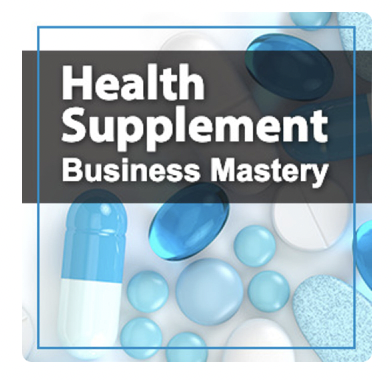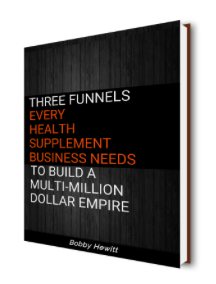Most health and wellness direct response companies approach the market by trying to find the “killer” hook. Usually by copy existing hooks in their niche, or one-upping a competitors hook, or simply by creating a bigger promise.
Sometimes this works, if the conditions are right. But in most cases it turns out to be the same headline, with just a different product. Even when this works, it doesn’t last and the market quickly catches on. Leaving the marketer to follow the same pattern, making even bigger promises or scraping to find other competitors to copy.
That’s why so much marketing online in the health industry is copycat marketing. But, the fake guru’s will tell you, it’s because they are “modeling what works”. The truth is modeling only works in an immature market and the health and wellness market is anything but.
The reason why copycat marketing is so prevalent actually goes to a more fundamental problem however. And that is because most online marketers don’t understand both the awareness of the marketplace and the marketplace sophistication.
A lot of marketers get these two, awareness and sophistication, mixed up. It’s easy to do, since they are loosely connected. Only the top players understand the difference and how to use them.
Here’s what you need to know about…
Marketplace Awareness
Both, market awareness and market sophistication were popularized by Eugene Schwartz, one of the greatest direct response copywriters in the world, in his best-selling book Breakthrough Advertising.
Marketplace awareness is simply the answer to – How well known is your: product, benefit, and problem, in the marketplace?
To analyze your markets level of awareness you need to answer these 3 questions:
- What do they know about your product and or main ingredient (in the case of a health supplement)?
- What do they know about the benefit?
- What do they know about the problem?
The most basic way to analyze this is to use Google Keyword Planner and Google Trends.
Google Keyword Planner will tell you, how aware the market is on a very basic level.
- What is the search volume for keywords around your product, ingredient, benefit or problem?
Search volume will tell you which ingredient, benefit or problem has more general awareness than another.
- Which specific keyword variations around each are getting more searches?
Keyword phrases will tell you what specific words the market uses to describe their problem and which word has more general awareness than another.
Google Trends will tell you, if those keywords are on an upward or downward trend.
An upward trend is the ideal situation because it tells you the market is hungry for more. A downward trend or a flat trend might be a sign that demand is waning and you might need to keep digging to find a new angle, more of which we’ll get to when we talk about marketplace sophistication.
After you’ve gathered some analysis from Google Trends and Keywords, then it’s time for you to rate each, (product, benefit, problem) on a scale of most aware to least aware.
Most Aware
On the most aware end, the customer knows your product, what it does, and wants it, she just hasn’t gotten around to buying it yet.
If you have a product where the market knows your brand name, i.e. they are very aware of the product, benefit and problem, like Advil. Then you don’t even have to say ANYTHING about the product, benefit or the problem. You just need to remind them of it and the situation, tell them where to get it and maybe that it’s on sale.
Problem, Solution, Product Aware
I the middle of the spectrum, the customer knows your product’s name but doesn’t want it yet.
This is the bulk of all advertising you see on TV and most print campaigns and even online. These are your typical brand campaigns. This is NOT in the same world as selling health online, which mostly uses direct response copywriting.
Least Aware
On the far right, is the least aware. Where your prospect isn’t aware of what your product does or how well it does it, i.e. the benefit. And they may not even be aware of the problem they need solved at all. They may in fact have the exact problem but they don’t yet know they need a solution. This is where 80 – 90% of companies selling health online firmly sit, with the former in the kind of aware stage.
For this market, your online health product may satisfy a benefit that the market may or may not know about but they know they have a problem they want to solve.
Now That You Know The Marketplace Awareness, What’s Next?
You have to figure out where they are there in the spectrum of awareness, in order to apply this market place awareness knowledge.
Here’s an example…
Let’s say the market is already aware and knows about the main ingredient and the benefit of your health supplement product.
You confirmed this by doing the analysis. The number of monthly searches are pretty high and the trend analysis, has been flat over time.
So you learned that, the market is very aware of your main ingredient and the benefits. You can also infer that they already know and want it.
Now it’s time to build a hypothesis around that.
Here’s our hypothesis:
If the market already knows about the benefits of your main ingredient then they likely have already heard all the claims. If we create a headline that is counter to the main claim then we can attract the attention of a medium to high level of awareness market. We can also test adding specificity to the headline to segment a specific market group.
The top direct response health and wellness marketers fully understand their prospect’s marketplace awareness in their specific product category. Which is why they are able to craft a marketing hook that captivates the market, get’s them interested, keeps them reading and or watching their VSLs and ultimately gets visitors to buy.
With this core foundation of awareness under your belt, we can unpack the more advanced topic of marketplace sophistication, in the next article.
Discover the 3 funnels that can help your health supplement business succeed.

Listen to the Health Supplement Business Mastery Podcast for for dietary supplement entrepreneurs and marketers.



